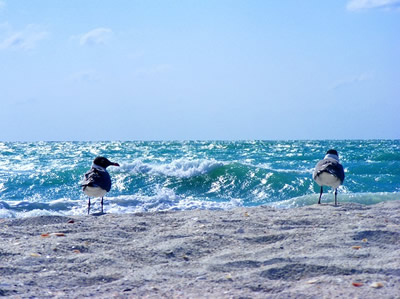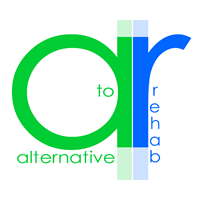
by Dave Cooper | Jun 2, 2017 | Families
Addiction in families – A Family Illness?
 Addiction in families is an issue as old as addiction itself and this is the first in a series of articles relating to the family. It will offer lots of practical help and things you can do to improve the family health. You could start by downloading my ebook The five big mistakes families make…. on the subject.
Addiction in families is an issue as old as addiction itself and this is the first in a series of articles relating to the family. It will offer lots of practical help and things you can do to improve the family health. You could start by downloading my ebook The five big mistakes families make…. on the subject.
As far back as 1935 Alcoholics Anonymous was calling alcoholism ‘a family illness’. Of course they were talking particularly of alcoholism. And they were largely concerned with the ‘effects’ on the family. Not so much addiction in families but how the wife (they still largely saw the problem as male) might help and best support her Husband.
Coming forward to today we can definitely say that things have changed. As a society we are now looking at the issue more from a general addiction perspective which includes behavoural addictions. Our understanding has grown to include the ‘co-dependent personality and so the family are now seen in their own right and not just unsuspecting bystanders affected by the addicted individual.
The Family is the client
As a systemic Family Therapist my approach to the issue is to see the family as the client. There are some advantages to seeing it as an illness and there are now no less than fourteen separate addiction conditions recognised by the DSMV. So it’s official, it’s a disease. In some parts of America the Jennifer act allows family members to be committed for their own safety.Clearly there are enough symptoms etc to consider it an illness but there are also some disadvantages to seeing it this way, which I would call the medical model.
The fact is that when I have contracted or am born with an illness, the tendency is to see myself as absolved from all responsibility. There are some exceptions but this approach often has people too far removed from a sense of responsibility for themselves. You will not take enough responsibility for your self if you have been schooled to think this way. Of course it is a huge ‘move on’ from the earlier approach (the moral model) which placed 100% responsibility on the addicted person. From this perspective they are simply making bad choices.

The family is a complete system
When working with families with addiction the most difficult idea they face is that there is nothing they can do. This belief often comes from the perspective described above. When you see the issue as an illness, contracted through no fault of their own, you are left in a pretty helpless position. When you see the issue as an ‘innapropriate relationship’ then there are lots of things you can do! When I work with a family I make no distinction between the family members in the sense that they are all part of the complete system.
Co-dependence
The first thing you need to know about co-dependence is that it is like a coin with addiction and codependence being the heads and the tails. Of course this is a hugely important part of the family recovery and I would encourage you to subscribe to the podcast page specific to relationships and to see my other material on the subject.
Communication – the key to growth
The first thing you should try to set up in your family when suffering with addiction issues is better communication. The most basic way that the ‘post’ issue problems (by which I men the problems that arise as a result of addiction) can confuse things is the way the addict can tell different people different things. By simply telling different family members different stories the addict maintains unhealthy boundaries and manage the whole family from behind simple untruths.
One of the first (and best) things the family can do is to set up a method of communication between the members that insures good information for all parties. Choose a method of communication. ‘whatsapp’ or facebook, texting or skype are some alternatives. The point is that anything, and I mean anything, that you hear from the addicted family member is shared with the whole family.
The addict in the family (or addicts) soon learn that talking to one member is like talking to them all. Straight forward deceit is not a big problem for every family but when it is, this is one of the biggest and simplest ways of managing it and can save the family so much heartache.
Money – Let’s face it and get honest
Most families with addiction issues have money issues. The big three (as I call them) are money sex and food. These are the three things that addicts eventually have to deal with. It can often be years after abstinence has been achieved. Money is often the first thing that comes up as it mostly involves all others, and problems with it are difficult to hide or ignore.
So what about money? Depending upon the nature of the addiction there may be no sign that money is a problem. The issues of a very successful workaholic and those of a heroin addict can present in an apparently different way. But for the purposes of this general look at the subject I will concentrate on the most typical scenario your family will face. That is an addict in the family needing money and not having any. Constantly lying manipulating and stealing from within (and without) of the family.
The communication network you set up will help with this a lot but the biggest challenge you face as a family is to yourselves. Ask yourself “what is my attitude towards money”? Do you have a belief that it is better to supply your addict with money than for them to steal it from somewhere? Remember, the challenge to yourself must be as great as the challenge to your addicted family members.
If you have a lot of trouble with boundaries around money, get together with your other family members and agree on the boundaries. When pressurised or challenged later you can stand on the idea that this is not your decision. You have set this boundary as a family.
Set your focus as a family
 When there is addiction in families they tend to focus on the addict. It is so important for your health as a family that you set your focus as something else! Individually your focus should be your own growth and development as a person. As a family your focus should be to develop harmony and intimacy. You will learn more about each other including your vulnerability and difficulty. Focusing on anything other than your addict tells you how much you have been affected by this issue.
When there is addiction in families they tend to focus on the addict. It is so important for your health as a family that you set your focus as something else! Individually your focus should be your own growth and development as a person. As a family your focus should be to develop harmony and intimacy. You will learn more about each other including your vulnerability and difficulty. Focusing on anything other than your addict tells you how much you have been affected by this issue.
Go for the long game
Try to stay away from any sense of the quick fix. If your addict seems to be listening to you do not feel that you can take advantage of this by intervening with some formulaic solutions and improvements. They are likely to be manipulating you because they want something.
This is the type of beginners mistake that counsellors not trained in addiction and recovery work tend to fall for. The general rule is ‘when you think you are manipulating them, they are probably manipulating you’.
Go more for the long game. Assess improvements over months rather than days. Have long term aims and try not to be too disappointed by small set backs (of which there will be many). Commit to growing through these things. They are not a problem to be fixed.
Till next time when I will be taking all these subjects and more in detail.
Please like subscribe and share!

by Dave Cooper | Apr 2, 2017 | Building Recovery

Is this the right place to build recovery?
This is the second question in the series of planning your recovery. After asking you the first question “Is it your design“? I now want to ask you is this the right place to build recovery?
Remember that you must plan your recovery, so you must ask your self important questions before you start. For instance you may be taking it for granted that this is your location. But every time you build a house you build it somewhere, next to someone else, in a certain neighborhood. And you have a plan.
What you are considering is hard enough without making it harder! Give your self every chance.
Friendships
So now it’s time for you to take a long hard look at your friendships! think about each person in turn and include your family! Ask yourself these questions, has this person got my best interests at heart? Has this person shown friendship towards me or am I only useful as an associate? Would they still want to be around me if I was no longer addicted? Would it suit them if I stopped or would they prefer it if I went back to using? Did I meet this person through my addiction? Are they still addicted themselves?
If the answer is that they are not going to support your recovery then they have to go!
Environment
Even though your building is a metaphor it is still important to think about the ‘environment’ that it is going to be in. This can literally be a certain town or area of town. It can also be about who you are living with. Even your family can be the enemies of your recovery, sometimes without meaning to be. Remember that when I talk about the environment I am talking about your social environment. Are you going through a difficult period in your relationship?
We will talk about boundaries more in later Blogs but for now remember that it is far easier to plan where you are going to build recovery now than it is to move the house later.

by Dave Cooper | Jan 13, 2015
Build your complete recovery from the foundations upwards! This course helps to guide you in build a complete recovery no matter what approach you are using! This course supports your recovery by using the metaphor of a house or building. This will ensure that you...

by Dave Cooper | Aug 4, 2014 | A2R, Theory

Relationships and Recovery go together
Relationships and Recovery from addiction
Relationships and recovery go hand in hand. I would go as far to say that the quality of your relationships will equal the quality of your recovery!
Let me put it another way. The effort, open mindedness and courage that you are willing to bring into your relationships will reflect the progress you make in your recovery. That is how important relationships are in your plans and efforts at recovery. Read on if you want to know more about how this works.
I thought it would be a good idea to try and create some clarity on this subject, particularly for anyone following and practicing my own approach. At the end of blog you should know what I think about this subject and what I advise for those in early recovery.
Don’t give up on relationships!
Most of the ‘YouTube’ wisdom these days bothers me. Most of the advice is telling you to ‘get out’! To listen to some of it you would think they had married an axe murderer! Now call me an optimist but there is a very good reason why I try my best to ‘reconnect’ couples who I work with and it’s to do with the phenomenon of attraction itself. To describe this I always use the idea of icebergs!
Icebergs and attraction
No I am not saying people are cold or anything like that! It’s more to do with the unconscious. Icebergs are seven eighths under water. Picture two icebergs in the sea as two people meeting. The eighth that you can see above the water is the look of a person, their speech, clothes and everything else you can see and hear etc. But whilst you are looking at each other above the water, there is much more of us saying hello under the water! Remember the seven eighths under the water is meeting too! This underwater ‘psychological shape’ of each person can ‘fit’ with the other or can ‘jar’ with the other.
When you meet someone you are attracted to you ‘psychologically fit’ with the other person. You feel ‘attraction’. When you meet someone who ‘rubs you up the wrong way’ you have a bad fit (remember those times when you just think “I can’t stand them” for no obvious reason? Well now you know why. We cannot ‘see’ the unconscious (underwater) and so we experience a good ‘fit’ as attraction. Like two jig saw pieces that make a perfect picture!
If you do not change you will continue to be attracted to the same psychological ‘type’. This is why a lot of people who see leaving or ending the relationship as a strategy find themselves in another relationship but with the same issues! Clearly this is a fruitless strategy and why we see so many unhappy people who seem to keep ‘finding’ the same person again and again!
The key is always to change you, you are the only one you can control! Then you will be attracted to and be attracted by someone of a different psychological type. Of course changing is not always easy.
Narcissism and co-dependency
Of course in addiction and recovery we are going to be talking about Narcissists and co-dependents and the way they are attracted to each other. Using the model above you can see that there is a perfect fit between your self as the narcissist and the co-dependent or the other way round. It never ceases to amaze me whenever I see these two types meet. They look like they are in heaven! All their prayers have been answered!
I cannot tell you how many times I have tried to persuade a couple like these to at least suspend their relationship until they finish treatment! I have to tell you that I was never successful. A couple in this state cannot listen to anyone. They must have their way! Even though they have spent thousands on their treatment, they give it up in an instant to be with their perfect partner (or so they think).
Missing the greatest opportunity for growth
The simplistic answer to ‘GET OUT’ of the relationship is missing a vital part of the picture, which is that we are still talking about genuine attraction, and for reasons that would take much too long to go into here, this means that there is an opportunity for growth inside the realtionship that will present itself in no other way!
One of the saddest moments of my working life as a recovery counsellor in residential rehab was working with someone who had taken this advice to the extreme. Having had two serious relationships in her life which both turned out to be raving alcoholics she worked out that she was co-dependent. Putting two and two together she came to what seemed to her to be a logical solution, never have another relationship! Simply giving up on relationships means you will miss out on one of the main opportunities in your life to grow personally.
Being abused does not help you grow
Now let’s make sure we cover one really important point here. You need to keep your self safe. You should leave if you are being consistently abused and are constantly in danger of your life. But to say that you should leave because your partner suffers from a condition and is not interested in improving, or shows no sign of recovering? Well, if they had cancer or Alzheimer’s would the advice remain the same? Remember if you are married, it does say ‘in sickness and in health’ doesn’t it?
Starting your recovery started in a hostile environment where the partner is undermining your efforts and not supporting you is the greatest challenge in recovery. But that is often the best way! Without that level of challenge a lot of people just roll along with an underdeveloped recovery that cannot take any pressure.
Difficulties can be our best Teacher
Using your difficulties to grow is the only way your recovery will work. Developing something that will work in any circumstances. Well, the family home now seems like the ideal place to develop such a thing! Remember Recovery and relationships go together!
If you have a tendency to be overly helpful and ‘co-dependent’ the best place to learn about boundaries and self love and all the rest of it is in the company of someone who will test those new strategies and developments, that sounds like your partner!
The ‘alternative to rehab’ service keeps you at work and at home with your family. My experience has been that if you are willing to learn to use the challenges that face you to grow and to learn about your self you are setting yourself up to succeed .
Thanks for taking the time to read this. Till next time.

by Dave Cooper | Jun 21, 2014 | A2R, Method
 Hi. Thanks for taking the time to read this. We are on a journey of change from an unhealthy pattern of living to a healthier pattern of facing and processing difficulties. By doing this we simply ‘outgrow’ our problems! How do we do this exactly? Today I want to give you a method of working with your security and how it relates to your growth! By the time you have read this you will have a better grasp on security and how to manage risk!
Hi. Thanks for taking the time to read this. We are on a journey of change from an unhealthy pattern of living to a healthier pattern of facing and processing difficulties. By doing this we simply ‘outgrow’ our problems! How do we do this exactly? Today I want to give you a method of working with your security and how it relates to your growth! By the time you have read this you will have a better grasp on security and how to manage risk!
Firstly let me say that this subject and method will not apply to everyone! In a way every subject is like a door that you can go through either way. Take anger for instance, most of us maybe need to be less angry, but there are some of us that need to get more angry! It is best thought of as learning to be ‘managing’ your anger. Risk is the same, we need to manage it. If you are struggling with a chaotic lifestyle your management of risk is going to look very different from someone suffering with OCD. Of course the obvious example here is a gambling addict, we are going to take for granted that their level of risk is off the charts and in terms of their addiction needs to reduce, but the same could be said about alcoholics who take the chance that they can sober up before an important meeting etc. Even gamblers need to take more risks! By the time you have finished reading this you will understand why I said that, so let’s make a start.
What is risk? At its most basic (which is where we always start) it is choosing a path where we could gain something but we could also lose something. So the first question is where are you with risk? Ask yourself how you handle situations, social, financial, romantic, career, communication etc. This will give you an idea which way you need to go through this door.
Now, look at yourself. What is it that you cannot risk? Are you a people pleaser that cannot risk people not liking you? Are you a workaholic that cannot risk people thinking that you are not giving 100%? Are you someone with low self esteem that cannot risk rejection? Are you someone with anger issues that cannot risk conflict? Are you someone with fear issues that cannot risk conflict? Have you taken a role in your family that makes it impossible to risk disharmony? Have you developed a fear of discomfort so you cannot risk being uncomfortable? Have you developed a belief about the dangers of the world that makes it impossible to risk going outside?
If you think about the concept of balance (see the podcast ‘balance’ on this web site) this is a very good way of thinking about risk! Just see yourself as perfectly balanced. You are standing well, on both feet. Maybe see the wind coming, but you are still balanced. Maybe see someone pushing you, but you are still balanced. Now, we can describe this position as a ‘stable platform’ without this we can do nothing. It is from this stable platform that we can think about risk, you see, if you achieve balance that’s great, but as soon as you achieve it you have got everything you can from it. The next stage is to think about risk. In this picture risk is seen as walking. Think about it, when you walk you lose your balance on purpose! The act of walking is a constant process of losing your balance and regaining it by rebalancing in a different place (one step forward).
So think about risk today, ask yourself these questions;
1 In which areas of my life do I need to be risking more?
2 In which areas of my life should I be risking less?
3 If I take a risk in my chosen area what might it cost me?
4 Am I ready to risk losing that?
5 If I take a risk in this area what might I gain?
6 Does this seem worth the risk?
7 How can I manage the level of risk involved?
Remember, you can’t do anything without risking something. Let’s finish today by looking at a typical risk situation.
Steve is a workaholic. He has his personal/work boundaries all meshed together. This leads to other forms of addiction such as drinking, drug taking and internet porn. He is thinking about risk now and sees that he needs to risk in the area of personal relationships. As he considers this he realises that what he will be risking most is his reputation with work colleagues and bosses if he takes time to socialise. He asks himself if he is ready to pay this price. He has worked tirelessly to create this image in their eyes. He realises that he is not yet ready to do this but feels that the exercise has helped him understand himself better, his weaknesses and his strengths. He will look again at this idea as part of his commitment to recovery.
Of course, like all these processes it is the commitment to practice that counts, not just the knowledge. I hope that helped you. Please email me with any questions.
Thanks again for taking the time today.

 Addiction in families is an issue as old as addiction itself and this is the first in a series of articles relating to the family. It will offer lots of practical help and things you can do to improve the family health. You could start by downloading my ebook The five big mistakes families make…. on the subject.
Addiction in families is an issue as old as addiction itself and this is the first in a series of articles relating to the family. It will offer lots of practical help and things you can do to improve the family health. You could start by downloading my ebook The five big mistakes families make…. on the subject.
 When there is addiction in families they tend to focus on the addict. It is so important for your health as a family that you set your focus as something else! Individually your focus should be your own growth and development as a person. As a family your focus should be to develop harmony and intimacy. You will learn more about each other including your vulnerability and difficulty. Focusing on anything other than your addict tells you how much you have been affected by this issue.
When there is addiction in families they tend to focus on the addict. It is so important for your health as a family that you set your focus as something else! Individually your focus should be your own growth and development as a person. As a family your focus should be to develop harmony and intimacy. You will learn more about each other including your vulnerability and difficulty. Focusing on anything other than your addict tells you how much you have been affected by this issue.






 Hi. Thanks for taking the time to read this. We are on a journey of change from an unhealthy pattern of living to a healthier pattern of facing and processing difficulties. By doing this we simply ‘outgrow’ our problems! How do we do this exactly? Today I want to give you a method of working with your security and how it relates to your growth! By the time you have read this you will have a better grasp on security and how to manage risk!
Hi. Thanks for taking the time to read this. We are on a journey of change from an unhealthy pattern of living to a healthier pattern of facing and processing difficulties. By doing this we simply ‘outgrow’ our problems! How do we do this exactly? Today I want to give you a method of working with your security and how it relates to your growth! By the time you have read this you will have a better grasp on security and how to manage risk!